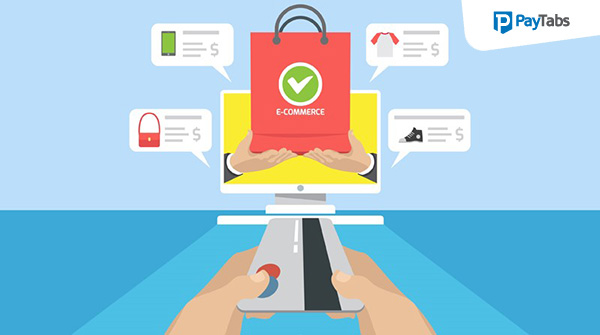7 Valuable Tips to Make E-commerce Payments Easier For Customers

It’s common knowledge that a better user experience on an e-commerce website leads to swift transactions, conversions, and sales. Yet, we have identified many e-commerce websites where making payment is not so easy and swift. Sometimes, a bug prevents users from quickly getting redirected to the payment page after they enter their payment information. This may frustrate even a genuine and loyal customer. If it happens more than once, the customer is not likely to come to your website again.
The checkout process is extremely critical, so e-commerce vendors should be extremely careful in this last and final stage of closing the sale. They should make sure that there is nothing that might prevent, distract or lead to bad user-experience on the checkout page.
If the entire customer experience is swift and smooth, a window shopper is likely to become your customer. However, if it is not the case, even a genuine customer may bounce off. Some vendors think that their responsibility is over once they slap a popular gateway on the payment page. If you do not have the full control on your entire checkout process, you are not likely to increase conversions and sales.
Let’s discuss a few ways to make the payment process easier for your customers.
- Creating an account should be optional
Several websites make it mandatory to create an account before a visitor lands on the eStore and decides to make a purchase. They do not allow users to purchase in guest mode. Largely because their marketing agencies tell them that it’s very important to retrieve the contact details of visitors. I agree, but there are several ways to collect this information and forcing them to create an account should not be mandatory.
According to Smashing magazine, there are many people who do not wish to set up an account with e-commerce sites, because of the fear of getting their inbox filled with spam and promotional emails. Another reason why people do not like to create an account is that while shopping at brick and mortar stores, nobody forces them to create an account before they make a purchase.
Sometimes it is the length of the form that distracts a customer. So make sure that your customer information form is as short as possible. Have you seen Facebook’s sign up form? It has just 4 entries in it.
- Consistency in web design
Maintain consistency across your website including your checkout page. It is not only good for branding but it will also prevent the skeptical people from leaving the website. People become skeptical after going through the horror stories of scams taking place all across the globe.
- Convince the customer about security and privacy
According to a study by eConsultancy, more than 60% of the participants abandoned the E-Commerce sites on the checkout page, primarily because they had some concerns about payment security. In order to assure such people, you should maintain a consistent design and shouldn’t redirect people to a third party website. Use secure socket layer certificate on your website and make sure that you comply with PCI Security Standards Council (PCI SSC). It enhances the customer confidence.
- Make it easy for people to correct the errors
While filling up their personal and financial information on the payment page, users might mistype and enter incorrect details. Usually, the error message flashes on top of the page and users are not able to see that. Instead, if only the particular field is highlighted, it will make it easier for the user to fix it.
- Ask for the information that is essential
Make sure that you do not ask unnecessary details and keep it to the bare minimum. According to a report published by Forrester, more than 11% of adults in the United States abandon an e-commerce site, when they are faced with a long form to fill up.
- Do not redirect your customers
Psychologically, people love branding – it includes the site layout, design, look and feel. They might feel a little uncomfortable, when they are redirected to another website to just complete the funnel. They might think that it will take additional time to complete the procedure, even if it is a part of same funnel.
- Prevent distractions on the checkout page
When the customer is at the end and the most critical stage of buying cycle, there shouldn’t be any distractions as customers have very little attention span these days. A little distraction can take them off to somewhere else and they might change their mind.
Final thoughts
So, if you are really serious about shopping cart abandonment, make it easier for people to pay. As a thumb rule, follow this: “I have to turn window shoppers into paying customers.”

